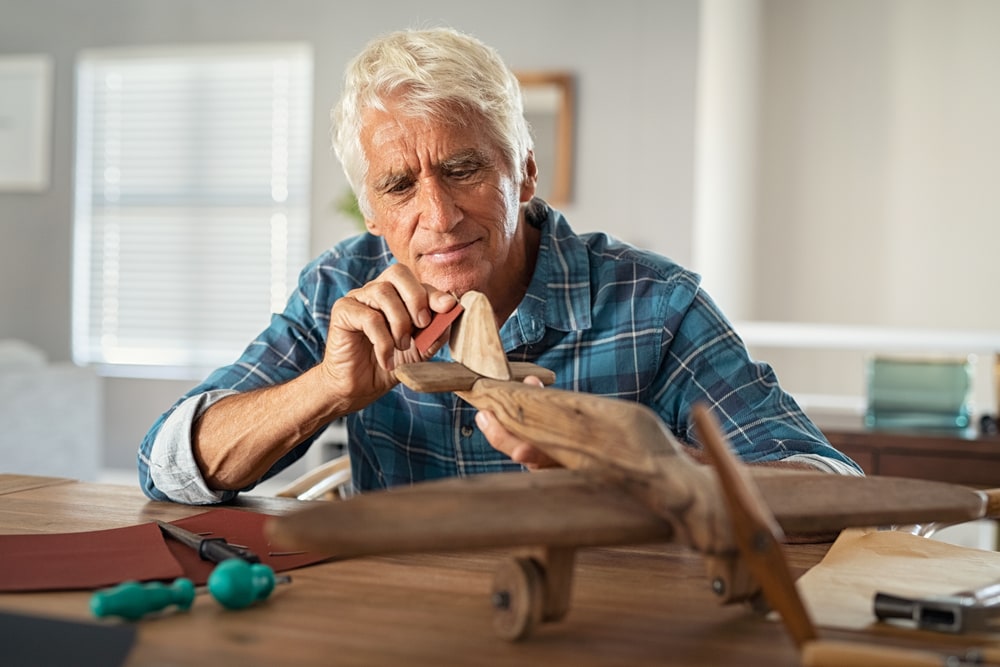
Many people associate hobbies and new experiences with youth, but later life is actually an ideal time to explore fresh interests. Retirement, fewer family responsibilities, and more free time create the perfect environment to focus on personal growth and enjoyment. Embracing new hobbies in later years can enhance mental and physical health, foster social connections, and bring a renewed sense of purpose. Here are some of the top reasons why later life is a fantastic time to try something new.
1. Increased Free Time
One of the most obvious benefits of later life is having more time to dedicate to personal interests. Without the daily pressures of work or raising children, there’s room to explore activities that may have been put on hold for decades. Whether it’s painting, gardening, photography, or learning a musical instrument, having the freedom to focus on a hobby can bring immense satisfaction. This newfound time allows for a deeper commitment and the opportunity to fully immerse oneself in the experience.
2. Cognitive Benefits
Engaging in new hobbies can stimulate the brain and improve cognitive function. Activities such as puzzles, learning a new language, or playing a musical instrument challenge the mind and help maintain memory, problem-solving skills, and overall mental sharpness. Research shows that adults who continue to learn and take on new challenges are less likely to experience cognitive decline. Starting a new hobby in later life can therefore be both enjoyable and protective for brain health.
3. Physical Health Advantages
Many hobbies promote physical activity, which is essential for maintaining strength, mobility, and overall wellness as we age. Activities like swimming, dancing, yoga, or even walking clubs encourage movement and help reduce the risk of chronic illnesses. Even hobbies that are less physically demanding, such as gardening, can improve flexibility, hand-eye coordination, and endurance. Staying active through hobbies contributes to a healthier, more energetic lifestyle.
4. Social Connections
Later life can sometimes feel isolating, especially if family and friends are busy with their own lives. Taking up a new hobby provides an excellent opportunity to meet like-minded individuals and expand social circles. Joining clubs, classes, or local community groups allows older adults to form meaningful relationships while sharing a common interest. Even if someone is in a care environment, such as this care home in Bath, participating in hobbies can foster a sense of community and prevent feelings of loneliness.
5. Emotional Wellbeing
Hobbies can have a profound impact on emotional health. Engaging in activities that bring joy and satisfaction can reduce stress, boost mood, and enhance overall life satisfaction. Creative hobbies such as painting, knitting, or writing provide an outlet for self-expression and can be particularly therapeutic. Actively pursuing enjoyable experiences contributes to a greater sense of purpose and fulfillment.
6. Lifelong Learning
Later life is an opportunity to embrace lifelong learning. Trying something new encourages curiosity, broadens horizons, and keeps the mind engaged. Many older adults find that they have the patience and perspective to explore hobbies in a way that’s deeply satisfying and meaningful. Whether it’s taking a cooking class, joining a local history group, or exploring digital photography, learning new skills can invigorate daily life and spark excitement for the future.
7. Personal Achievement
Mastering a new hobby provides a sense of accomplishment. Completing a project, reaching a skill milestone, or simply enjoying the process can boost confidence and self-esteem. This feeling of achievement is rewarding at any age and demonstrates that personal growth doesn’t have to stop later in life.
Whether it’s a creative pursuit, a physical activity, or joining a community group, embracing hobbies in later life can lead to a more fulfilling, joyful, and meaningful experience.